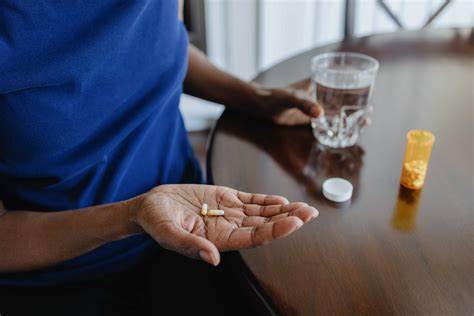By Oluwatise Osinaike
The primary reason drugs are coated is to make it appealing to the taste buds, especially for people who don’t like taking drugs that are bitter.
’m that one person that chooses drugs that are coated anytime I visit the pharmacy. For a better understanding, coated drugs are drugs that producers mask their original taste making it easier for patients to swallow.
Now, don’t be confused. There’s a whole difference between coated drugs and capsules. Capsules are small oval shaped shells made of gelatin or vegetable based materials. You’d usually see most antibiotics in capsule form. Antibiotics like tetracycline, amoxicillin, ampiclox e.tc are mostly manufactured in capsules. Capsules provide a stable and protective environment for the antibiotic powder or pellets inside. But today is not about capsules, let’s talk more on coated drugs.

Why drugs are quoted?
Have you ever wondered why some drugs are coated and others aren’t? Oh! You might say I just gave an answer above, to make them easy to swallow. But I’ve thought about it, and in my wild imaginations I began to think coating a drug could actually reduce its effectiveness. As some would say it’s more effective when it’s bitter. Even though this is not entirely true, I would still buy the idea.
Asides from having to taste drug bitterness, coated drugs can help minimize gastrointestinal irritation. There are some people that can’t help it, they throw up immediately they use any drug. In such scenarios coated drugs are often prescribed for their use. Another reason is, coated drugs can help to regulate the release of active ingredients, ensuring optimal absorption.
When a drug is absorbed into the system, it goes through some series of binding. I wouldn’t want to bore you with the whole binding process, but basically what coating would do is that it ensures the bound fraction of the drug stays in the bound state for a longer period, regulating its release. Once a drug is in its bound state it’s more or less useless, say inactive. It’s until it is in an unbound form that it can be able to exert some of its pharmacological effect.
This is good and bad at the same time. Its good because the drug would have a longer duration of action since the release of the active ingredient is being regulated. And it’s bad also because the drug would have a delayed onset of action, since a larger percentage of the drug is in a bound state. With this knowledge, it’s safe not to use a coated tablet, if your desire is to get a five minute result.
To a degree, coatings also protect sensitive active ingredients from environmental factors like moisture, light, or air, helping to extend the shelf life of the drug. Once a drug gets exposed to any of these factors, they begin to reduce in their potency and so, the drug no longer gets to function maximally. But coatings would do well, to protect the active ingredient from getting exposed to these factors, keeping the effectiveness of the drug.
Disadvantages of coated drugs
I guess I mentioned delayed onset of action as one of the disadvantages of coated drugs. Asides that, there are also lots of disadvantages especially for those in the industry or pharmaceutical firms which is coating defects. A tablet that is supposed to be coated blue and its turning out as sky blue or royal blue would leave the buyers with a lot of questions.
Although, this might have nothing to do with the way the drug would work but has a lot to do with the company’s brand and the excellence they are trying to achieve. That’s why many at times coated drugs are very expensive, because there’s a whole lot of work that goes into the production as compared to other drugs that are not coated.
What if I still want to use drugs that are not coated?
Of course yes, it’s not like coated drugs are the best to use. Like I said earlier, using a coated drug would not reduce its potency neither would it increase it.
The goal is to make sure that patients receive the highest quality medications while also selecting ones that are compatible with their genetic composition. Let me also add that it’s not all drugs that are coated. It’s not like you should start dictating to the pharmacist to give you a coated drug on every medication you ask for.
Although the pharmacist can go further to ask your preference, peradventure the medication you asking for also came in a coated form. All the same, whether coated or not, it’s the same result you would likely experience. It would just be that the effect of one would last longer than the effect of the other.
Examples of coated drugs
Some of the coated drugs in Nigeria include; Aspirin (pain relief and antiplatelet), multivitamins, ibuprofen (pain relief), amatem softgel (antimalarial) and so many others.


